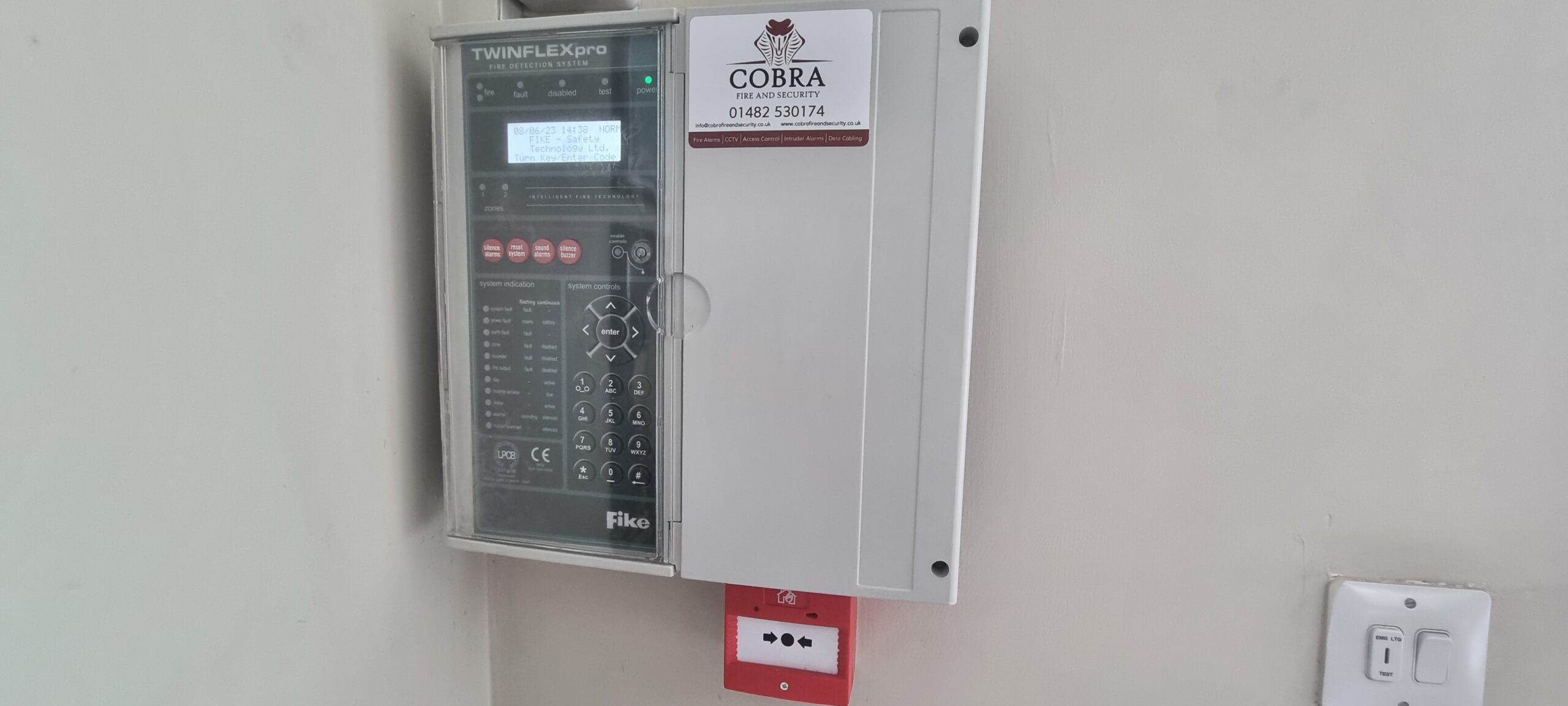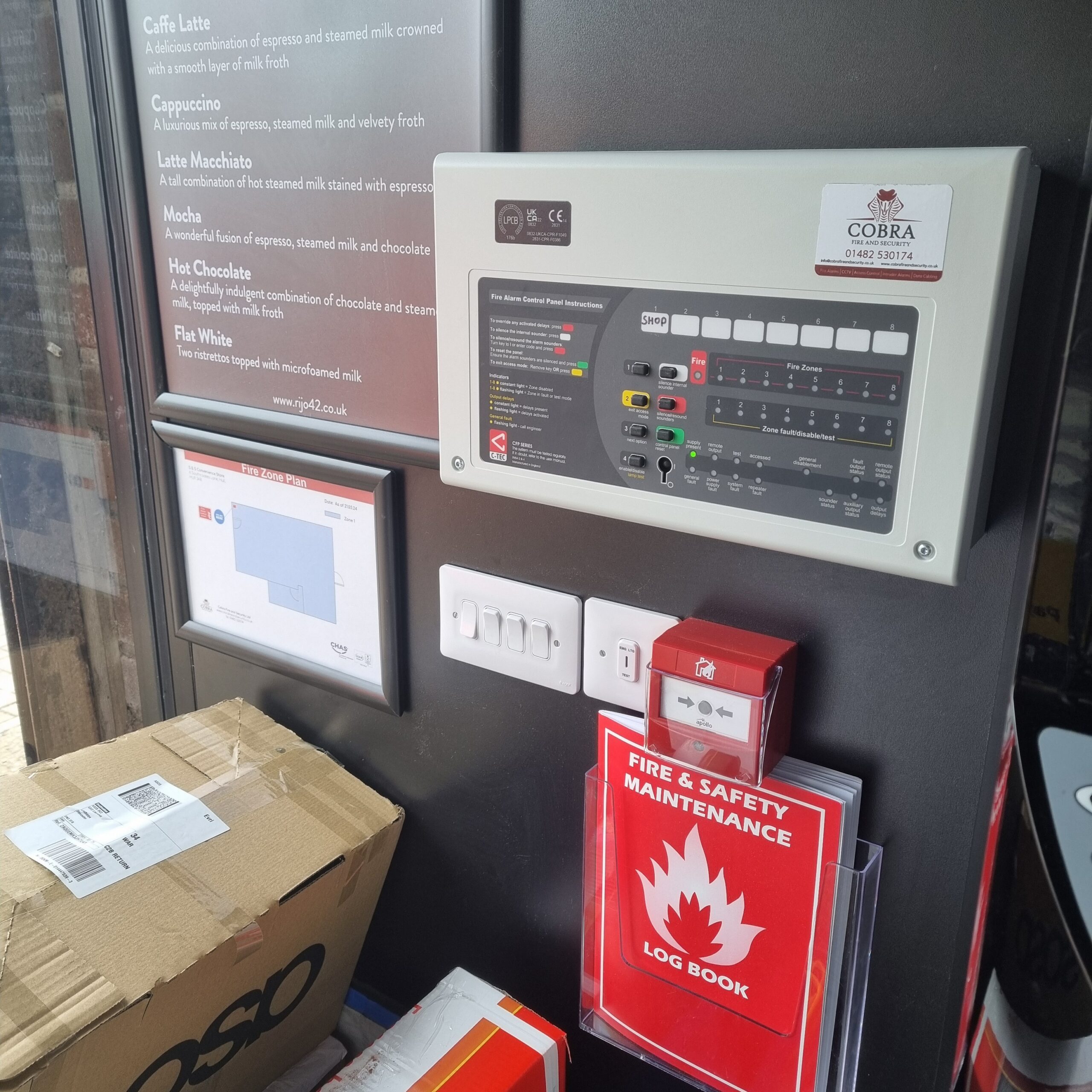
Are Fire Alarms Mandatory in the Workplace?
Why Fire Alarms Are Essential for Workplace Safety
In the UK, businesses must comply with the Regulatory Reform (Fire Safety) Order 2005, which mandates adequate fire detection and warning systems. This raises the question: Are fire alarms mandatory in the workplace? The answer depends on the fire risk assessment of the premises. While some may assume that shouting “fire” is sufficient, a proper fire alarm system is typically required to ensure workplace safety and compliance.
Legal Requirement for Fire Detection and Warning
The Fire Safety Order explicitly states that all workplaces must have sufficient means of detecting fires and alerting occupants. In most cases, this means installing a fire alarm system rather than relying on informal methods.
Fire Risk Assessments Determine Necessity
Every business must conduct a fire risk assessment to evaluate potential hazards and determine the best fire safety measures. Workplaces with multiple rooms, large areas, or high-risk activities typically require a fire alarm system to provide adequate protection.
Fire Safety Guidance from Authorities
Fire safety regulations and government guidance emphasise the importance of fire alarms, particularly for:
- Larger buildings where fire might not be immediately noticed.
- Complex layouts where alarms improve evacuation efficiency.
- Environments with high fire risk, such as kitchens, workshops, and storage facilities.
Avoiding Legal and Insurance Consequences
Failure to install a fire alarm where required by your risk assessment can result in:
- Legal penalties for non-compliance.
- Increased liability if a fire occurs.
- Insurance issues, as non-compliance may void fire-related claims.
Final Thoughts: Fire Alarms Are a Workplace Necessity
While fire safety regulations allow some flexibility, relying on shouting “fire” is rarely adequate. Installing a proper fire alarm system ensures compliance, improves safety, and provides early detection—protecting both people and property.
Understanding Workplace Fire Safety Regulations
Fire safety in the workplace is governed by strict regulations to protect employees and visitors. In the UK, the Regulatory Reform (Fire Safety) Order 2005—commonly referred to as the Fire Safety Order—outlines legal requirements for businesses.
This law places a legal duty on the Responsible Person (usually the business owner, employer, or designated manager) to take proactive steps in ensuring fire safety. Failure to comply can result in serious legal and financial consequences.
Who is Responsible for Fire Safety in the Workplace?
Fire safety responsibility typically falls on a Responsible Person, but in most workplaces, multiple stakeholders share this duty, including:
- Employers
- Business owners
- Landlords
- Building managers and managing agents
- Occupants or tenants (where applicable)
In workplaces with multiple tenants or large premises, it’s often necessary to form a fire safety team to manage compliance collectively. This ensures that fire safety measures are properly implemented and maintained.
Key Responsibilities of the Responsible Person
If you are designated as a Responsible Person, you must ensure:
✔ Regular fire risk assessments are conducted and reviewed.
✔ Fire hazards and risks are identified and communicated to staff.
✔ Effective fire safety measures are in place and properly maintained.
✔ Emergency procedures are established and clearly communicated.
✔ Staff receive fire safety training and instructions regularly.
For businesses, a written fire risk assessment is mandatory to comply with fire safety laws. Keeping detailed records demonstrates compliance and ensures safety measures are up to standard.
Why Fire Alarms Are Essential for Businesses
We’ve already covered the legal obligations surrounding fire alarms in the workplace, but their importance goes far beyond compliance. A reliable fire detection and alarm system plays a vital role in protecting lives, preventing business disruptions, and safeguarding assets.
1. Fire Alarms Save Lives
The primary purpose of fire alarms is to detect fires early and provide immediate warnings. This allows employees, customers, and visitors to evacuate safely before a fire escalates. Every second counts—an effective alarm system ensures that lives are protected.
2. Fire Detection Minimizes Business Disruptions
A fire can be devastating for any business, leading to:
🔥 Property damage that requires costly repairs.
🔥 Lost revenue due to operational downtime.
🔥 Potential business closure in severe cases.
With early fire detection, businesses can act quickly, using fire extinguishers or fire suppression systems, while also ensuring the fire and rescue services arrive promptly. This reduces damage and helps maintain business continuity.
3. Protecting Property, Equipment, and Assets
Beyond saving lives, fire alarms help protect physical infrastructure, valuable equipment, and business assets. A fast response can limit damage, helping businesses avoid financial strain and ensuring long-term stability.
Investing in Fire Safety: A Smart Business Decision
Fires can start from accidents, electrical faults, or negligence—but with the right fire alarm system, businesses can reduce risks and protect their future.
🔎 Want to know which fire alarm system is best for your business? Check out our guide on Business Fire Alarm System Options.
Reviewed: 29/01/2025 Our articles are reviewed regularly. However, any changes made to standards or legislation following the review date will not have been considered. Please note that we provide abridged, easy-to-understand guidance. To make detailed decisions about your fire safety provisions, you might require further advice or need to consult the full standards and legislation.
Share this article
Written by : Michael Winter
Follow us
A quick overview of the topics covered in this article.
Latest articles
July 14, 2025
July 14, 2025









